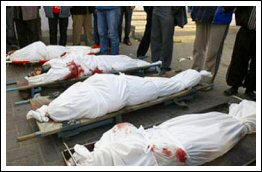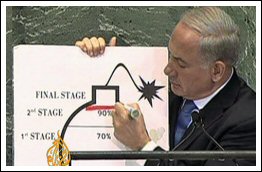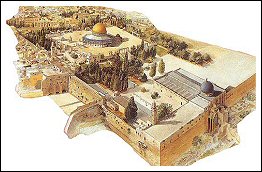Published today (updated) 28/05/2011 11:59

A Palestinian child holds a key representing that of her home which, it is claimed,was snatched from her family during the creation of the state of Israel at the Rafah border terminal between Egypt and the southern Gaza Strip. Egypt has reopened the controversial border with the Gaza Strip, allowing people to cross freely for the first time in four years, an AFP correspondent reported.
(AFP/Said Khatib, File)
GAZA CITY (Ma’an) — Egypt reopened its Rafah border crossing with Gaza permanently on Saturday morning, easing Israel’s four-year blockade on the Gaza Strip.
Egyptian officials said the terminal would operate daily between 10 a.m. and 6 p.m. except Fridays and public holidays, giving Gazans a gateway to the world as Rafah is the only crossing which does not pass through Israel.
Residents of Gaza would be able to enter Egypt without visas with the exception of men aged between 18 and 40.
Hundreds of Palestinians arrived at the crossing, but Gaza official Salamah Baraka said Palestinians who had already registered to cross the border would be given priority.
Baraka said police would announce new travel arrangements soon, but that online registration via the interior ministry website would continue.
Among the first to cross the reopened border post were two ambulances ferrying patients from the hitherto-blockaded Gaza Strip for treatment in Egypt as well as a minibus carrying a dozen visitors, an AFP correspondent reported.
Egyptian medical staff were deployed to the crossing to make sure travelers did not have infectious diseases, but state security was not present at the terminal.
In the past, Egyptian state security were a major part of the staff manning the crossing.
People entering from Gaza were supposed to be inspected by the newly formed Egyptian national security service, but the officers were not at the terminal on Saturday due to problems with police deployment in the Sinai peninsula, a Ma’an correspondent reported.
Commercial traffic will continue to have to pass through border points with Israel to enter the impoverished enclave.
Egyptian Foreign Minister Nabil Al-Arabi announced in April that the crossing would reopen permanently, stressing this would help ease the blockade imposed by Israel.
The border has remained largely shut since June 2006 when Israel imposed a tight blockade on Gaza after militants snatched Israeli soldier Gilad Shalit, who is still being held.
The blockade was tightened a year later when Hamas seized control of the territory, ousting forces loyal to the Western-backed Palestinian Authority.
The United Nations has called the blockade illegal and repeatedly demanded it be lifted.
The decision to permanently reopen the Rafah crossing came more than three months after former Egyptian president Hosni Mubarak resigned under pressure following 18 days of massive street protests against his rule.
It was hailed by Gaza’s Islamist rulers, Hamas, and the European Union, but Israel has greeted the news with trepidation.
Hamas spokesman Fawzi Barhoum said Thursday the move was “a courageous and responsible decision which falls in line with Palestinian and Egyptian public opinion.”
“We hope that it is a step towards the complete lifting of the siege on Gaza,” he said, a day after Egypt announced it would open the crossing on a permanent basis to ease the blockade which has been in place since 2006.
The European Union also praised the move and said it was in consultations with Egypt, the Palestinians and Israel about returning its team of advisers to monitor activity along the frontier.
But Israel expressed concern, with Home Front Defense Minister Matan Vilnai telling public radio it would create “a very problematic situation.”
The move was hailed by Israeli NGO Gisha, which campaigns for freedom of movement for Palestinians.
“Gisha welcomes the announcement that Egypt will expand the ability of Gaza residents to travel abroad via Rafah crossing, which has become Gaza’s gateway to the world,” the group said.
The move follows an April 27 unity accord between rival Palestinian factions Hamas and the Fatah party of President Mahmoud Abbas that was signed in the Egyptian capital.
“This new Cairo spring is bearing fruit such as the Rafah opening and efforts to end the blockade,” said Nabil Shaath, a senior Fatah official on a visit to the Gaza Strip.
Figures provided by the NGO show that over the past year, an average of 19,000 people a month have used the crossing — just 47 percent of the number who used it in the first half of 2006.
AFP contributed to this report
![]()
Special Topic | Egypt opens Rafah Border with Gaza but still no Real End of the Restrictions on Movement for Palestinians
In pictures

 May 28, 2011
May 28, 2011 

































Comments are closed.